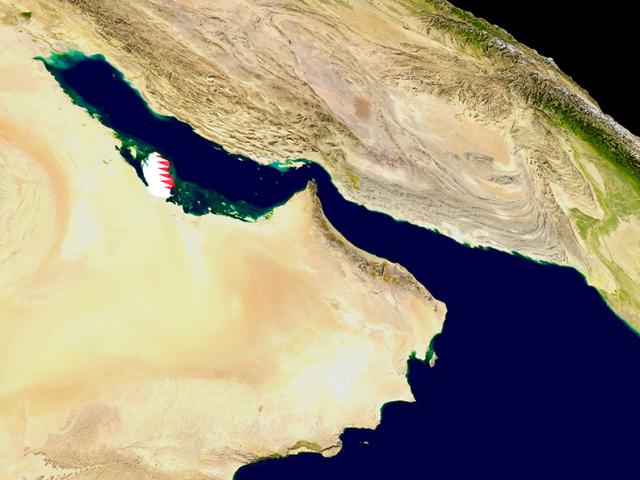
Aiming to maintain market share, Qatar Petroleum lifted its self-imposed moratorium on the world’s largest natural gas field after more than a decade.
As part of its drive to monetize its gas reserves, Qatar Petroleum announced it recently lifted a self-imposed moratorium on developing North Field, which is the world’s biggest natural gas field, after more than a decade. Qatar Petroleum's President and CEO Saad Sherida Al-Kaabi said the company plans to develop a new gas project in the southern sector of the North Field, and work on the project’s details will begin over the next few months.
The giant Gulf gas field, which Qatar calls the North Field and Iran calls South Pars, accounts for nearly all of Qatar’s gas production and about 60% of its export revenue. Iran and Qatar respectively hold the world's second- and third-largest natural gas reserves, behind Russia. Their South Pars/North Field gas field holds an estimated 50.97 trillion cubic meters (Tcf) of in- situ gas and some 50 billion barrels (Bbbl) of condensates, according to the International Energy Agency (IEA).
Qatar managed to join with major international firms to develop the field, becoming the world's largest exporter of LNG. Meanwhile, Iran's development of South Pars has been hampered by protracted delays, mainly because of international sanctions.
Qatar declared a moratorium in 2005 on the development of North Field, saying then that it needed time to study the impact on the reservoir from a rapid increase in output.
"Qatar Petroleum’s technical studies and assessment of the North Field have confirmed the potential for developing a new gas project that can be targeted for export with a capacity of about 2 billion cubic feet per day (Bcf/d). It is worth noting that a project of this size will increase the current production of the North Field by about 10%, which will add about 400,000 barrels per day of oil equivalent (Mboe/d) to the State of Qatar’s production,” Al-Kaabi said. "Since 2005, Qatar Petroleum has been conducting extensive studies and exerting exceptional efforts to assess the North Field, including drilling a number of appraisal wells to better estimate the Field’s production potential, which enabled us to reach this satisfactory result today."
The move has surprised many players in the market, especially as the company was supposed to lift the moratorium in 2014. But it didn’t, believing that the country’s interests were best served by keeping the field’s unallocated reserves for future generations.
But as competition between gas players has intensified, industry analysts said the move signals Qatar’s intention to grow LNG market share, which is falling as other regions add capacity. For instance, Australia is set to become the largest LNG producer with about 85 million tons of LNG each year – more than 20% of worldwide capacity--by 2019, surpassing Qatar, which is currently the largest LNG producer in the world with 77 million tons per year.
“The LNG market presently looks oversupplied, but by the time this new capacity is commissioned, in five to seven years’ time, new pre-FID [final investment decision] LNG supply is likely to be required. The move represents a threat to other potential LNG producers, as Qatar can add new capacity at a lower cost than anybody else,” Wood Mackenzie wrote in a note.
Other analysts said that the move is a direct response to Iran’s ongoing efforts to develop South Pars to meet the growing local consumption. France’s Total is the first foreign firm to sign a heads of agreement deal to develop Phase 11 of Iran’s South Pars since Western sanctions against Iran were loosened. The South Pars 11 project will have a production capacity of 1.8 Bcf/d, or 370 Mboe/d. The produced gas will be fed into Iran's gas network.
But Al-Kaabi said during a press conference that Qatar Petroleum’s decision to lift the moratorium is something different that has nothing to do with Iran.
Recommended Reading
Nabors, Corva Expand Alliance to Boost AI-Driven Innovation at Rig Sites
2025-04-11 - Nabors Drilling Technologies and Corva AI will use the RigCloud platform to provide real-time insights to crews directly at drilling sites, the companies said.
Inside Prairie’s 11-Well Program in the D-J
2025-04-08 - Prairie Operating Co.’s 11-well program in the Denver-Julesburg Basin is drilling horizontal 2-milers with a Precision Drilling rig.
Woodside Awards SLB Drilling Contract for Project Offshore Mexico
2025-03-31 - SLB will deliver 18 ultra-deepwater wells for Woodside Energy’s Trion ultra-deepwater project starting in early 2026.
Energy Technology Startups Save Methane to Save Money
2025-03-28 - Startups are finding ways to curb methane emissions while increasing efficiency—and profits.
Kelvin.ai the 'R2-D2' Bridging the Gap Between Humans, Machines
2025-03-26 - Kelvin.ai offers an ‘R2-D2’ solution that bridges the gap between humans and machines, says the company’s founder and CEO Peter Harding.
Comments
Add new comment
This conversation is moderated according to Hart Energy community rules. Please read the rules before joining the discussion. If you’re experiencing any technical problems, please contact our customer care team.






